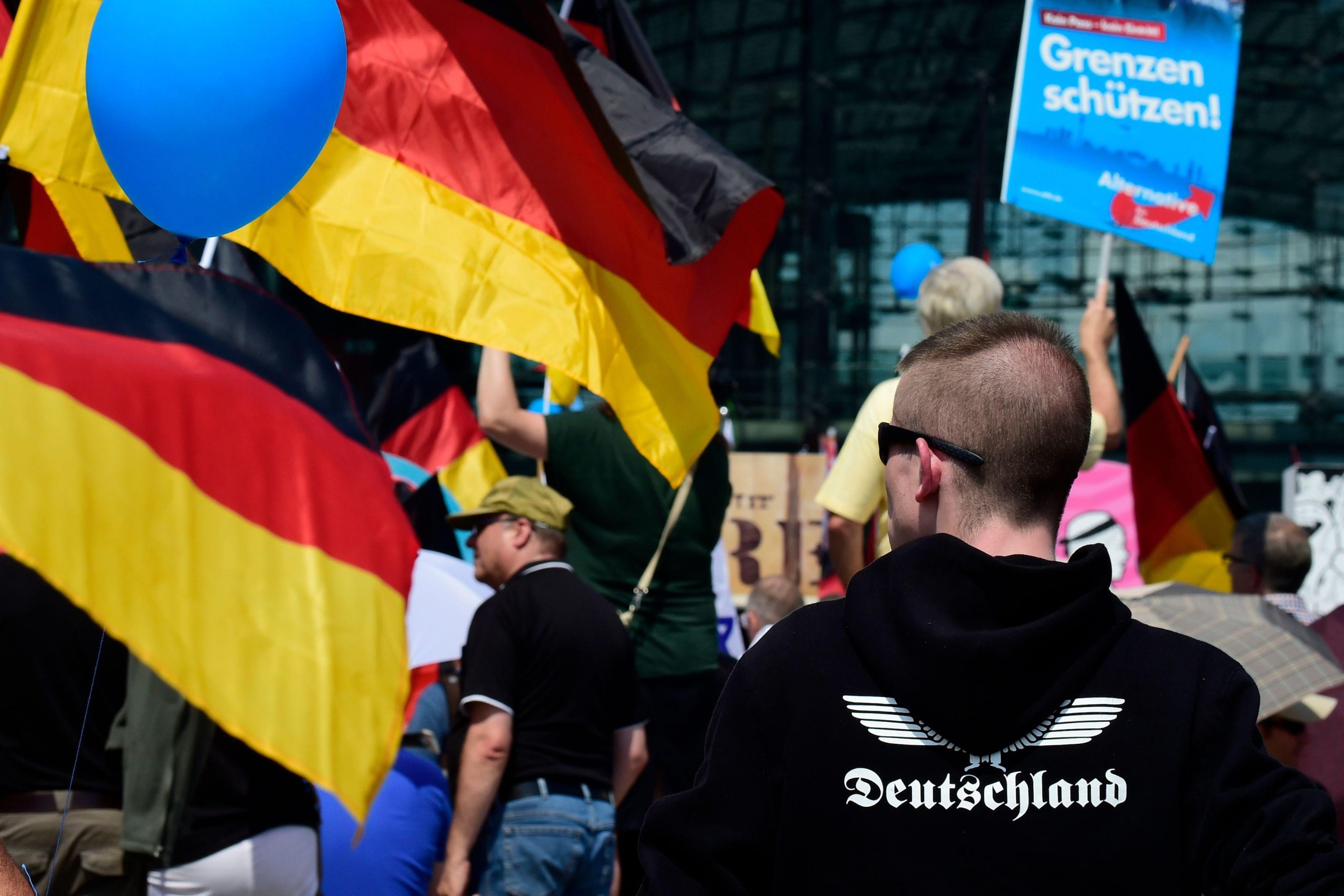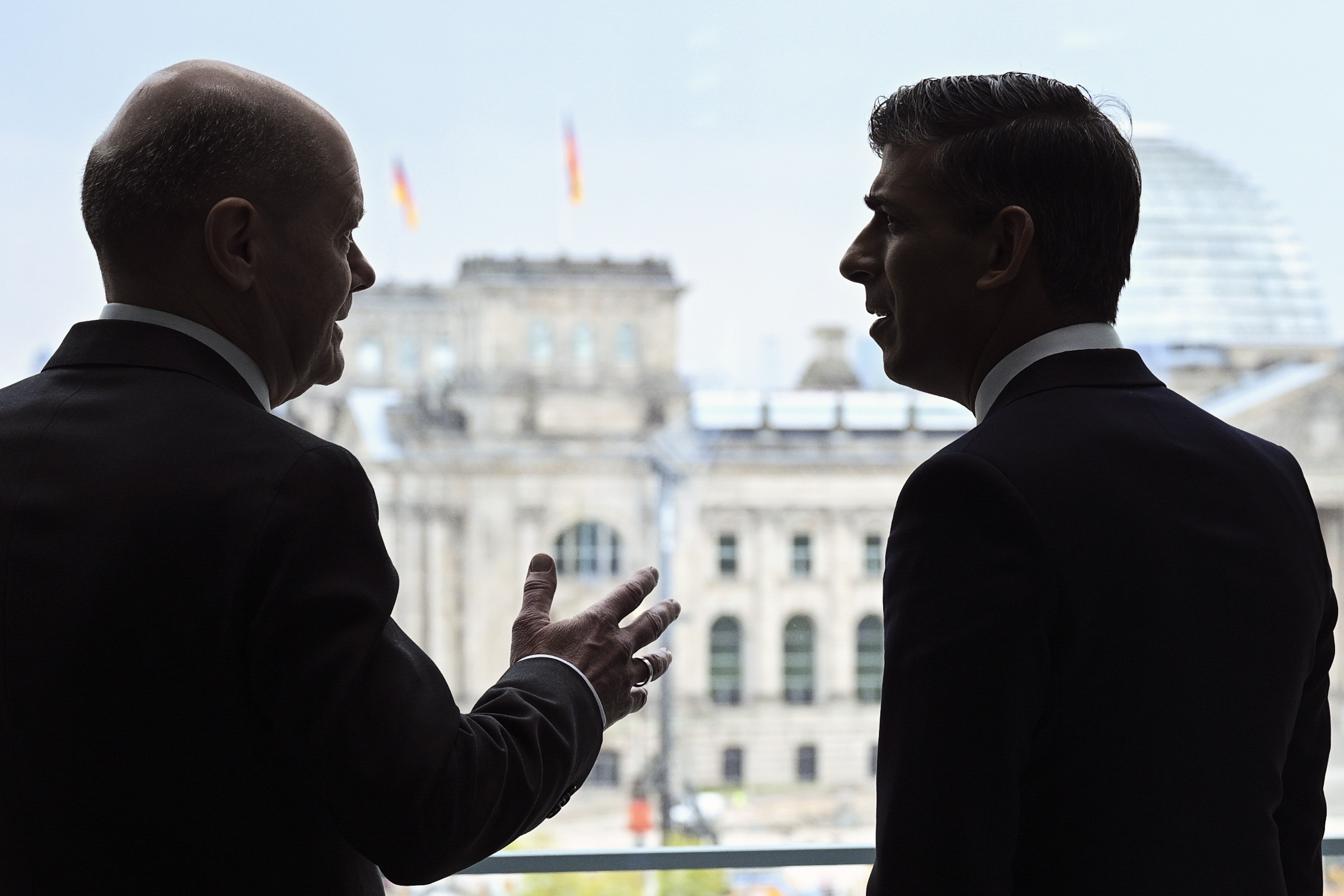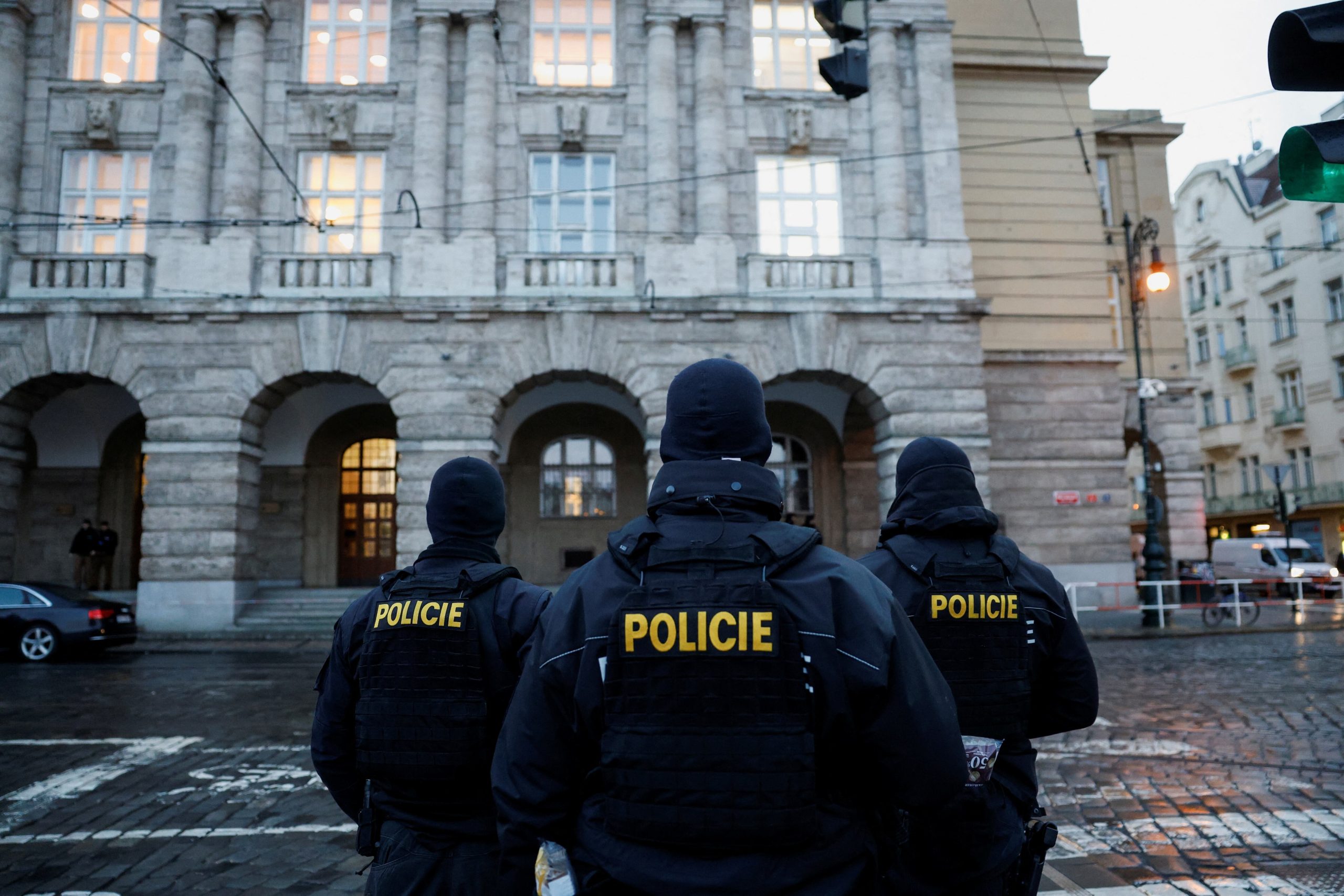Germany’s far-right populist AfD: No gains, small losses
DW –The far-right Alternative for Germany party remains strong in the east, but has suffered small losses nationwide — and will not be involved in any coalition talks, as it remains a pariah for all other parties.
Germany’s eastern state of Saxony bucked the nationwide downward trend: The Alternative for Germany (AfD) emerged as the strongest party there in Sunday’s general election, clearly ahead of the center-right Christian Democratic Union (CDU), while the Green Party barely managed to get above 5% in the state. In neighboring Thuringia, the AfD also narrowly beat the Social Democrats to become the largest single party.But, overall, the election saw the AfD lose roughly two percentage points from its 2017 result, now winning just over 11% of the nationwide vote — putting the party in fifth place. In 2017, the AfD was the No. 3 vote-getter and the largest opposition party in parliament.
“This is no defeat” was the message from the AfD leaders when the results were published. “Anything above 10% is a solid result,” said one of the party’s two lead candidates, Tino Chrupalla, adding that the next few days would be spent analyzing to whom voters migrated and why. The other leading candidate, Alice Weidel, was quick to allege that the the losses were the result of media bias and what she called unfair election campaigning by political competitors.
The far right’s eastern stronghold
Support for the AfD may have shrunk in western Germany, but Sunday’s result also showed that the far-right party has entrenched itself as a force in all the states in the former German Democratic Republic (GDR), where it can count on over 20% of voters, as opposed to closer to 10% nationwide.The AfD was also able to comfortably fend off attempts by major parties to shift to the right in order to win over eastern German voters. That was shown by the failure on Sunday of the former domestic spy chief turned right-wing firebrand Hans-Georg Maassen, who stood as a Christian Democrat candidate in the eastern state of Thuringia. Maassen’s third-place finish seems to have refuted arguments that center-right parties can convince AfD voters to shift away from the far right.
Earlier this year, Marco Wanderwitz, a CDU lawmaker born in the GDR’s Karl-Marx-Stadt (now Chemnitz) and now the government’s commissioner for eastern Germany, summed up his analysis in a podcast by the Frankfurter Allgemeine Zeitung newspaper: “We’re dealing with people who have partly been socialized by a dictatorship in such a way that they haven’t yet arrived in democracy even 30 years later,” he said.His comments upset many eastern Germans, but they also illustrated just how deeply the Cold War division still cuts into Germany’s psyche: No matter what has happened in the past three decades, the political debate about eastern Germany is often still defined by the period from 1949 to 1989.
The demographic changes following reunification have been dramatic: The east has seen a brain drain as the young and well-qualified moved westward, and eastern states still lag behind the western states economically.
The party for the left-behind
Across Germany, studies by the pollster infratest dimap have shown that the AfD tends to be strongest in areas where populations are shrinking. That has led political analysts to label the AfD a “protest party” that offered those who felt “left behind” by western Germany after reunification a way to voice their irritation at the political “elites” in Berlin. Many German commentators also saw the rise of the party as part of the international trend that saw voters in the UK approve the Brexit referendum and Americans elect Donald Trump as US president.
But the AfD is also split internally between “moderate” and “far-right” wings, the latter of which seem to be gaining ground, shading over into racist nationalism and antisemitism. That has divided the leadership, most notably between party chairman Jörg Meuthen, considered a moderate, and Weidel, who both refused to entertain questions about whether Meuthen would stand for the party position again. Nevertheless, the AfD failed to find a new issue to galvanize the party’s base, as it had in 2015-16, when Germany saw increased arrivals of people fleeing humanitarian crises. Now, the fact that the AfD will no longer be the strongest opposition party in the Bundestag will rob it of a high-profile role and potentially make it less visible in Germany’s political discourse.
While you’re here: Every Tuesday, DW editors round up what is happening in German politics and society, with an eye toward understanding this year’s elections and beyond. You can sign up here for the weekly email newsletter Berlin Briefing, to stay on top of developments as Germany enters the post-Merkel era.




